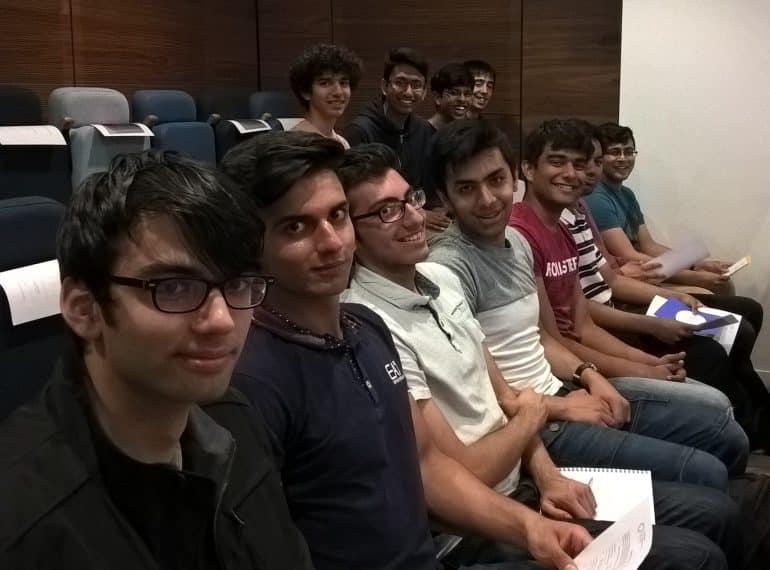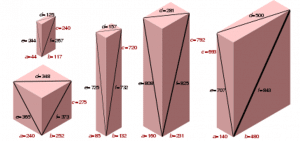
Twelve sixth-formers heard two lectures from mathematicians chosen for their distinction in the subject and their communication skills.
The Year 12 boys heard Dr Jennifer Rogers, from Oxford University, and Dr Katie Steckles, of schools outreach organisation, Think Maths, deliver this year’s London Mathematical Society Popular Lectures at Bush House.
In her talk, entitled Living is a Risky Business, Dr Rogers explained that we are bombarded with statistics every day and that it is therefore important to be able to discern the truth behind a shock headline.
She discussed, for example, the statistics behind the newspaper headlines about bacon sandwiches causing a higher risk of cancer and being equally as bad as smoking. She explained that there is a 1 in 80 lifetime risk of being diagnosed with pancreatic cancer so scaling this up, this is the same as a 5 in 400 risk. A 20% increase would therefore mean that the lifetime risk of getting pancreatic cancer is now 6 in 400.
The headlines only considered statistical significance without quantifying it in any way. For comparison, there is a 4 in 400 chance of being diagnosed with lung cancer if you have never smoked. Smoking more than 25 cigarettes a day increases that to 96 in 400 as you are 24 times more likely to be diagnosed with cancer. Both results (bacon and smoking) are statistically significant but they do not pose the same risk as each other.
Afterwards, one of the QE Year 12 audience, Nico Puthu, said: “I’m really pleased to find out that it’s perfectly safe to eat as much bacon as I want!”
Dr Rogers finished by explaining her dealings with Ryanair. As Vice President of the Royal Statistical Society, she was asked by the TV programme, Watchdog, to investigate the claims by Ryanair passengers that if they did not book seats in advance (and pay for this privilege), then they were always given a middle seat. Four researchers booked four different flights and all were allocated middle seats. She calculated that this would have a probability of 0.2% which suggests that seat allocation is not random. Ryanair, after many denials, finally admitted that their seating algorithm was not random.
QE attendee Sahil Shah said “I enjoyed hearing about her battle with Ryanair,” while Mudit Tuslianey added: “Dr Rogers’ talk linked well to what we have been studying at A-level.”
 For her lecture, Dr Steckles spoke on The Greatest Unsolved Puzzles in Maths. One of her demonstrations involved taking a piece of A4 paper and folding it three times, always folding along the longest edge, and then cutting off all four corners of the resulting shape. How many holes will you have made in the A4 paper when it is unfolded? she asked. (Answer: three). This led on to the introduction of the Euler brick which is a cuboid which has integer lengths and integer face diagonals. Some examples are shown in the image here.
For her lecture, Dr Steckles spoke on The Greatest Unsolved Puzzles in Maths. One of her demonstrations involved taking a piece of A4 paper and folding it three times, always folding along the longest edge, and then cutting off all four corners of the resulting shape. How many holes will you have made in the A4 paper when it is unfolded? she asked. (Answer: three). This led on to the introduction of the Euler brick which is a cuboid which has integer lengths and integer face diagonals. Some examples are shown in the image here.
Mathematicians are currently searching for the perfect cuboid which is an Euler brick that also has an integer body diagonal, Dr Steckles explained.
QE’s Assistant Head of Mathematics, Wendy Fung, said: “She finished by saying that all the unsolved problems that currently exist will be solved by people who, when they see a puzzle, don’t give up.”
Akshat Sharma and Aadi Desai spoke afterwards of their appreciation of the puzzles she set. Their classmate, Kiran Aberdeen, said: “I found Dr Steckles’ talk very amusing.”
